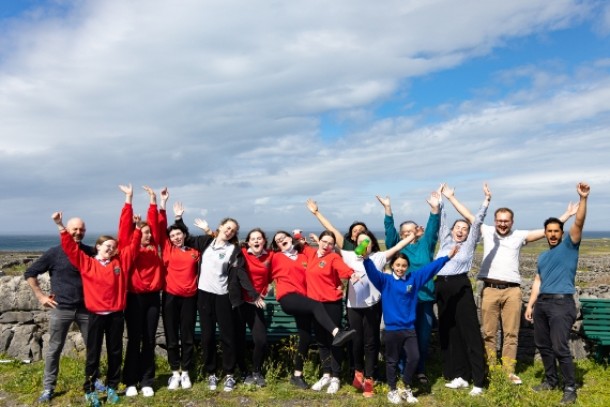Mind the Gap: Building Digital Bridges to Community
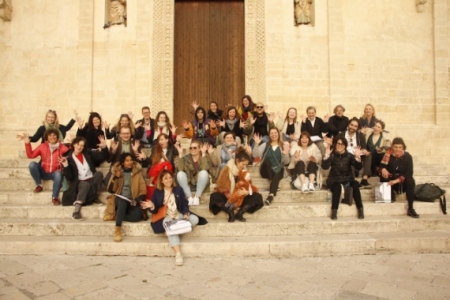
Mind the Gap: Building Digital Bridges to Community was inspired by this creativity and resourcefulness throughout the COVID-19 crisis. It brings together a consortium of six European arts organisations that are committed to enabling access to the arts. Our Project Administrator Paddy Jo Malpas took a look at Irish National Opera's involvement since 2021.
When the world went into unexpected lockdown in March 2020, many arts organisations across the globe had to quickly adapt to the novel idea of creating art through digital means. The idea of running a rehearsal or workshop via conference software would have been quickly dismissed prior to 2020, but with the idea of the “new normal” came the increasing need to find new and innovative ways to continue making the work we love.
Mind the Gap: Building Digital Bridges to Community was inspired by this creativity and resourcefulness throughout the COVID-19 crisis. It brings together a consortium of six European arts organisations that are committed to enabling access to the arts. They are: Irish National Opera; Garsington Opera – an opera festival based in Oxford, UK; RESEO – a European network for arts education and creative learning; Les Clés de l’écoute – a company specialising in exploring classical music through orchestral performances and digital outreach; Meterahub – a centre that supports cultural and creative industries in the city of Matera, Southern Italy; and HVL – the Western Norway University of Applied Sciences.
Since March 2021, these organisations have worked on exploring methodologies for working digitally with disadvantaged communities. Whilst technology can enhance arts education by breaking down geographical and social barriers, educators often feel they lack the skills necessary to engage in digital projects. As the pandemic progressed, the prevalence of the “digital gap”, or inequality of access to digital tools and resources also became strikingly clear. Mind the Gap aims to provide arts education workers with the resources, tools and inspiration necessary to successfully implement online participatory projects. At the same time, the project has analysed existing barriers to participation and the best ways to address them.
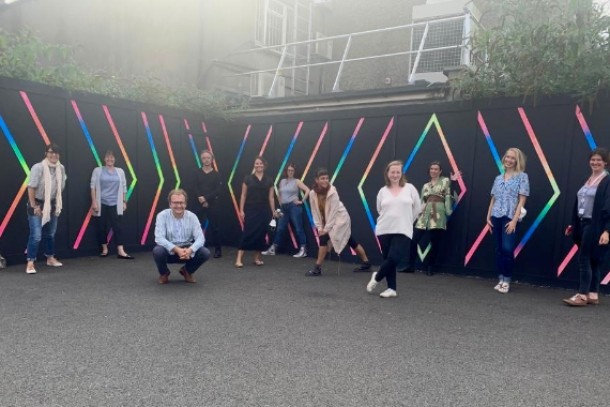
INO came to Mind the Gap a year and a half into Traction, another EU project, where we were creating the world’s first community-led virtual reality opera which ultimately became Out of the Ordinary/As an nGnách. The lessons we learned and the skills we accrued in co-creation perfectly leant themselves to this project. Whilst most of the meetings were held online, we finally were able to meet in person in Dublin in September 2021 where we discussed and plotted out the implementation of the different “IOs”, or Intellectual Outputs.
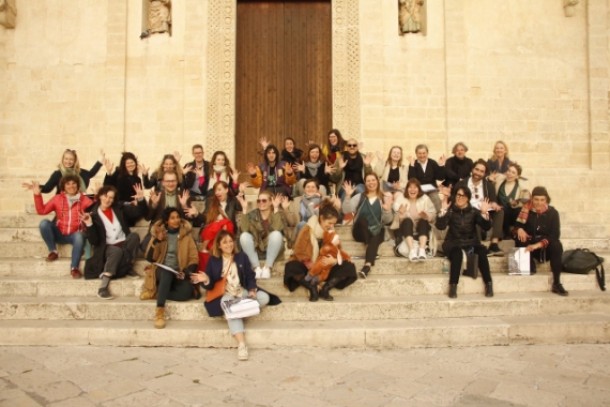
IO1 – Case Studies
A call was put out to arts organisations and educators that had developed projects with communities throughout the COVID-19 crisis. They were invited to tell us about these projects and from that long list, we selected 16 case studies on which to base our research. These case studies were selected for their innovative, accessible and cost-effective methodologies.
IO2 – Knowledge Hub
In April 2022, along with 20 very talented artists and cultural workers, we organised a five-day co-creation workshop to explore the work and digital tools from the case studies we collected. This collaborative week, called “Beyond Zoom”, gave us the building blocks to create our second intellectual output, the Knowledge Hub. The Knowledge Hub provides valuable resources for those looking to create digital work with communities and addresses the feeling from some arts educators that they lack the necessary skills to do so. It also addresses inclusivity and accessibility issues that many experienced with digital projects throughout the pandemic. The Knowledge Hub is a living resource that will be continually updated and built upon, even now that Mind the Gap is finished.
IO3 – Research report
As with all funded projects like Mind the Gap, we have a responsibility to provide a thorough report on our findings. This research report presents ten key issues when it comes to working digitally with disadvantaged communities. Each key issue is illustrated with a relevant example from the case study database. It is specifically aimed at arts institutions and their staff, as well as policymakers and offers recommendations for those looking to implement online participatory projects. The report is currently being finalised but will be available to view on the Mind the Gap website: https://www.mindthegap-project.org/
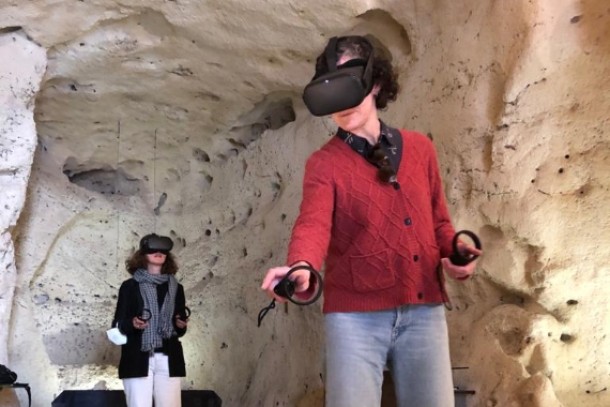
Even though we are living in a post-pandemic world and are experiencing the joys of in-person collaboration again, digital methods of co-creation are still relevant and necessary. We feel that Mind the Gap was successful in highlighting this need for digital innovation and will help build upon the work of the fantastic arts educators, facilitators, workers and artists that help to provide artistic opportunity to all.
Written by Paddy Jo Malpas (Project Administrator).
